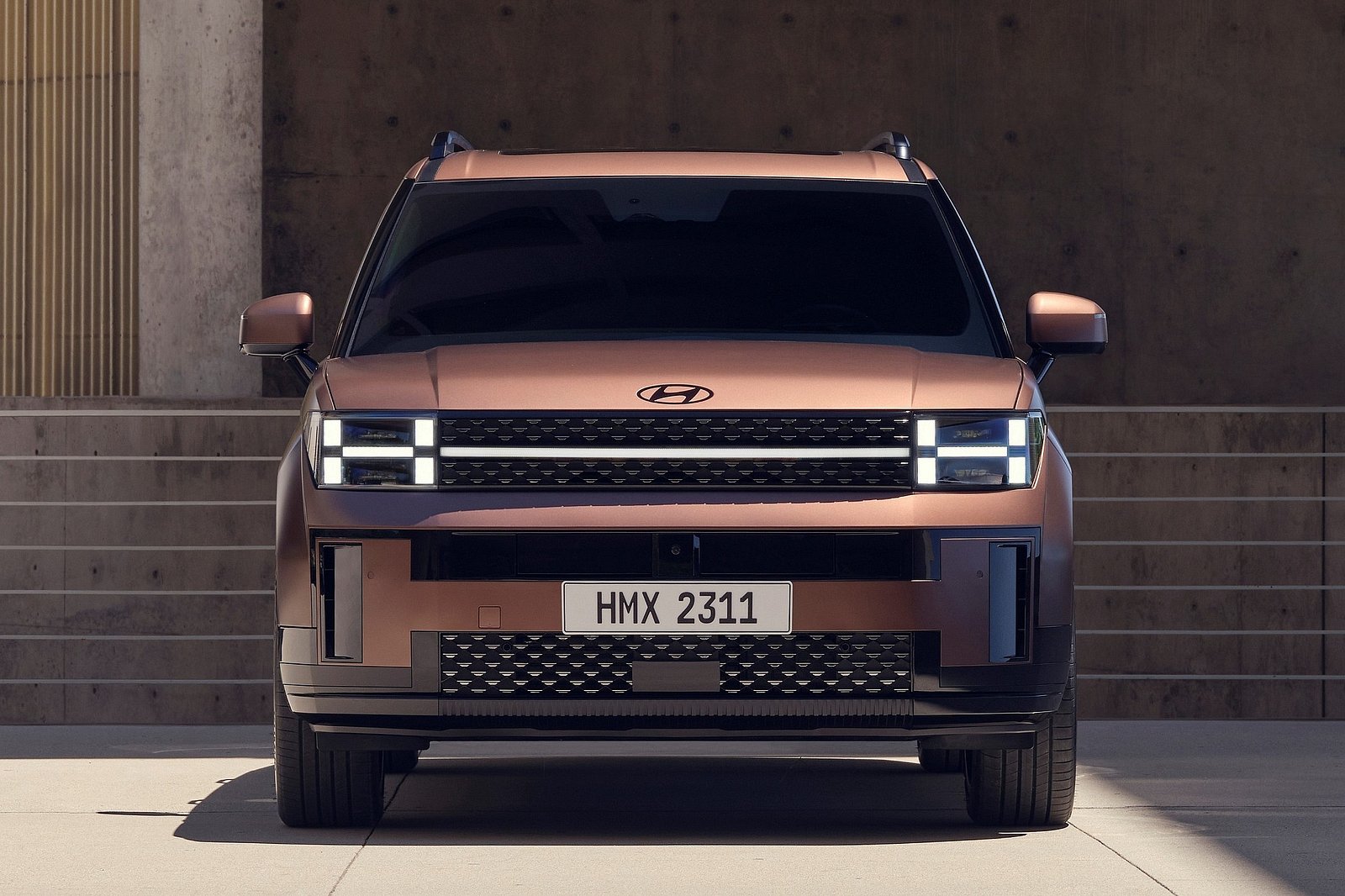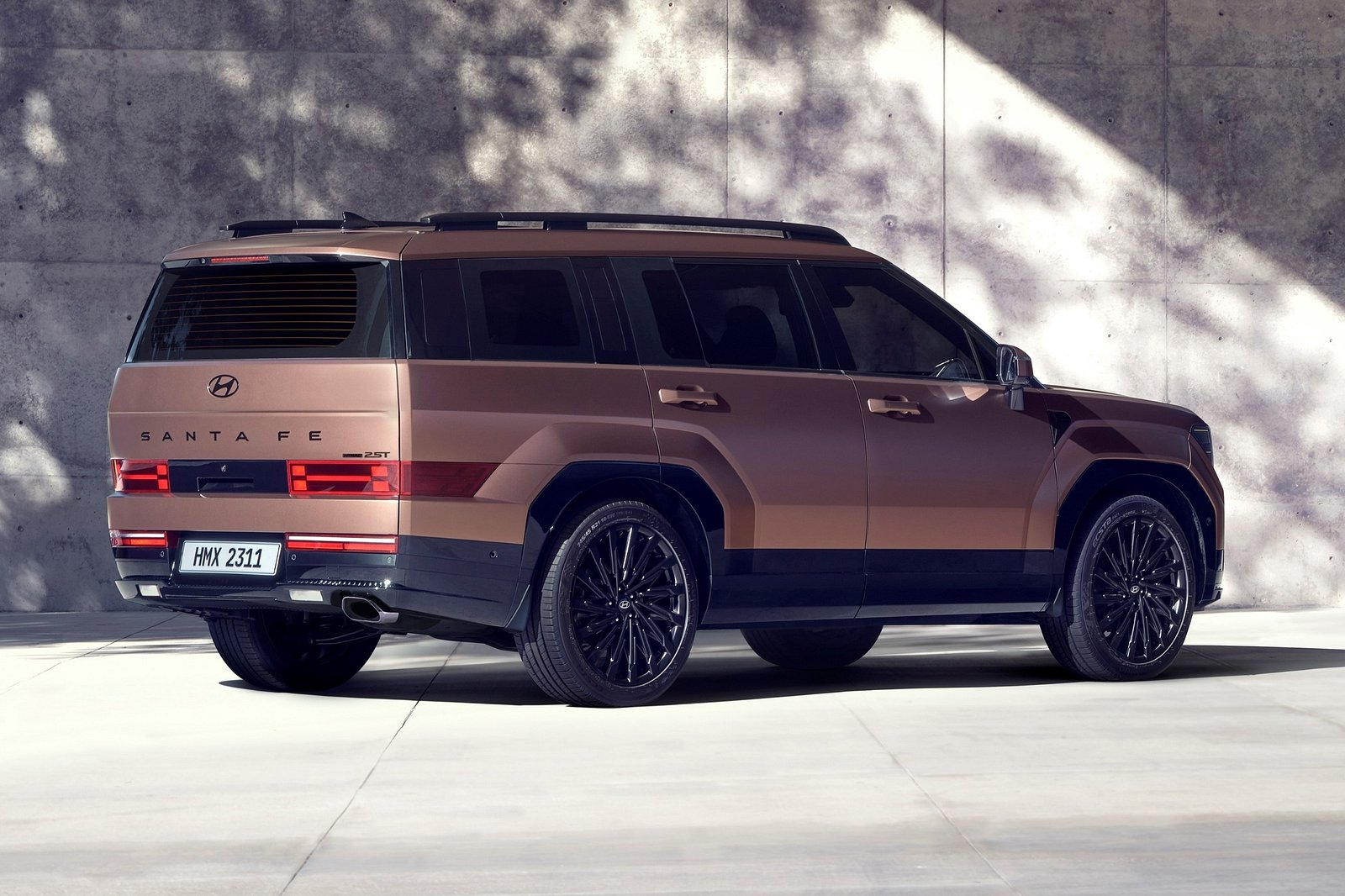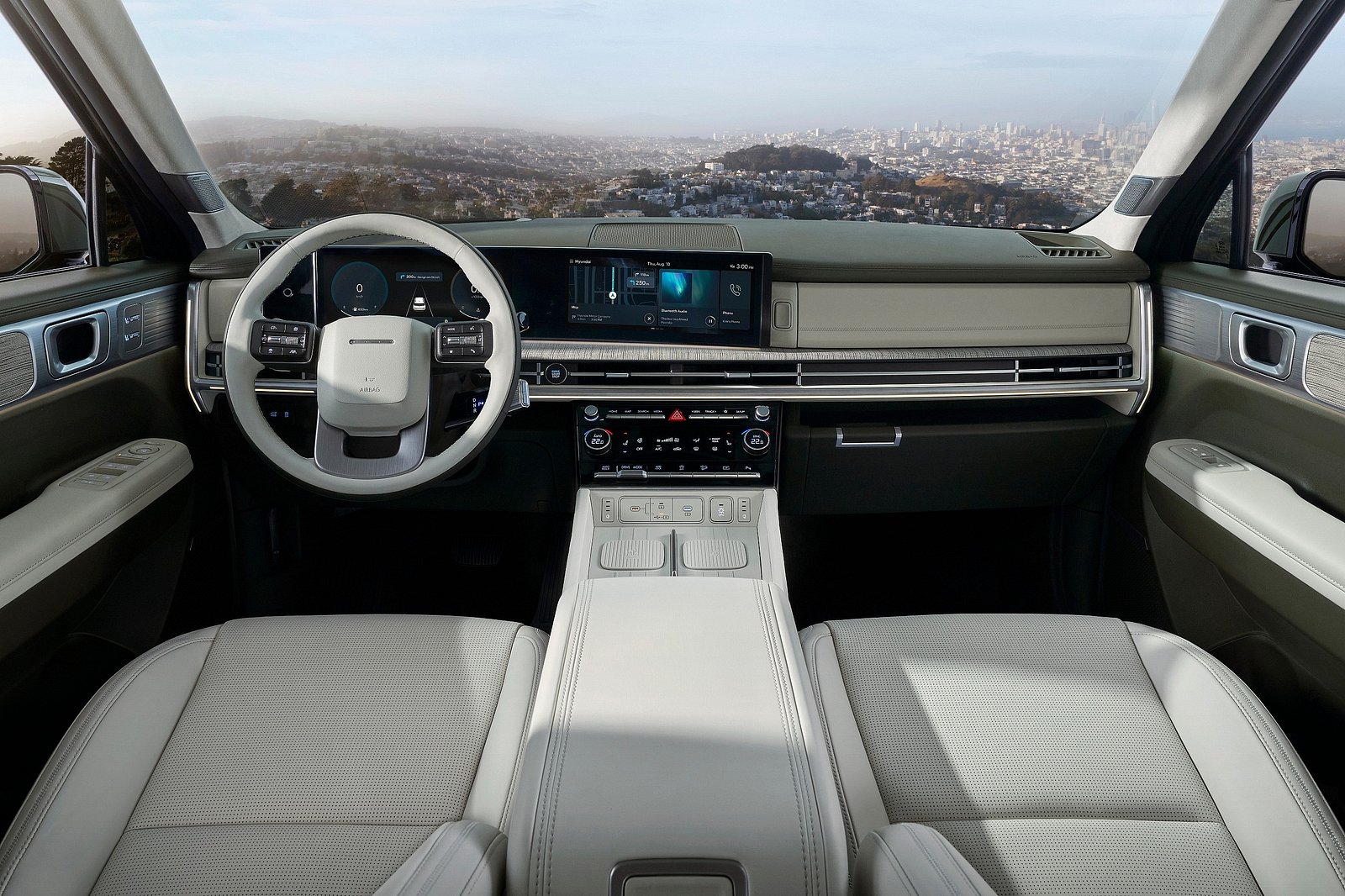It's easy to get sidetracked by the Santa Fe's dramatic redesign, but this SUV is full of useful features.
First revealed in July, the all-new Hyundai Santa Fe has been making headlines for its transformative styling. In one move, the Santa Fe has gone from being a competent but rather forgettable SUV to one that you'd buy if you want to make a statement. But the new Santa Fe is not all flash and no substance, for it has also introduced a number of new features that improve occupant comfort and make this an even safer vehicle. Several of these are claimed to be best-in-class or first-in-class, so we rounded up the new Santa Fe's best features.
The innovation intrinsic in the new Santa Fe starts before you even get inside. Claimed to be a first-in-class feature, the new Digital Key 2 allows for easy vehicle access/startup and remote control using your smartphone. Near-field Communication (NFC), Bluetooth Low Energy (BLE), and Ultra-wideband (UWB) have all been implemented to make this digital key work seamlessly. Digital Key 2 is compatible with both iPhone and select Samsung phones, and the primary user can share access with up to three other users using either Apple Wallet or the Samsung Pass app. A more detailed guide on how to get started with Digital Key 2 can be found here, and the feature is pictured below on the Palisade.
In the wake of the pandemic, the portion of the population that didn't already know how filthy the world we live in actually is now has a newfound awareness of such things. But, because Hyundai hasn't yet found a way to incorporate a faucet and mini wash basin into an SUV's interior, it has equipped the Santa Fe with a UV-C sterilization tray. Located at the top of the glove compartment, this tray can easily sterilize items like cell phones and wallets by using UV light to kill harmful bacteria. Most of us never disinfect these items, despite how frequently they're touched, so Hyundai's sterilization tray is a convenient solution to this problem. It's just a pity that you can't put your entire steering wheel in there.
The Santa Fe has the largest tailgate opening in its class. In fact, Hyundai even went so far as to place the taillights unusually low to accommodate this large tailgate with its longer-than-average hydraulic struts. Based on an 'Open for More' concept, this tailgate opening provides a terrace-like space where occupants can appreciate the great outdoors, whether on a camping trip or some other adventure.
When you aren't taking in the sunset and are commuting as usual, you'll also find seating that's more spacious than before. With a longer 110.8-inch wheelbase (+1.9 inches), the new Santa Fe provides more comfortable seating and superior cargo capacity compared to its predecessor. Second-row legroom is up by 1.37 inches in the non-hybrid model, but even the hybrid has over 41 inches of second-row legroom.
Third-row headroom is 37.7 inches, again claimed to be best-in-class, and legroom here is 30 inches. To put that into perspective, the Audi Q7 is over nine inches longer than the new Santa Fe but has less third-row legroom.
We've covered the cabin's spaciousness, but the seats themselves are more advanced than ever. In the first row, a Relaxation Seat with Leg Rest is said to "simulate a weightless experience" - it sounds a lot like the Relaxation Comfort Seat found in the Ioniq 5 (see video below), which is ideal for napping or reading. Korean-spec Santa Fe models will have a first-row Ergo Motion Seat with air bladders to enhance comfort.
The six-seat configuration has second-row captain's chairs with a power-reclining function and armrests. Second-row power fold-and-dive seats are available, too, and these have a cushion-angle adjustment for the ultimate in relaxing travel. Even passengers in the third row will enjoy the ability to recline their seats to 10 degrees.
Driver-monitoring systems have been around for a while, usually using cameras to detect a drowsy driver and warn them to take a break and freshen up. The Santa Fe comes with a system like this to track the attention of the driver, but it also goes a step further with a Driver Monitoring System to monitor the driver's vital signs. This is the first implementation of the technology for Hyundai in North America. While Hyundai didn't go into great detail about how the system works, the four vital signs typically evaluated by medical professionals are body temperature, respiration rate, pulse rate, and blood pressure. For drivers prone to bouts of road rage, those last two vitals could be useful for tracking when you're letting your emotions get the better of you.
Hyundai says this is another world-first, and it seems like such a simple yet effective idea that we wonder why it hasn't been implemented by another automaker already. In this center console solution, even second-row occupants - not just the driver and front-seat passenger - can open the compartment. It helps solve the issue of scant storage space for second-row occupants, where items often end up rolling around in the door bins.
 Hyundai
Hyundai
 Hyundai
Hyundai
 HyundaiUSA/YouTube
HyundaiUSA/YouTube
 HyundaiUSA/YouTube
HyundaiUSA/YouTube
 HyundaiUSA/YouTube
HyundaiUSA/YouTube
 HyundaiWorldwide/YouTube
HyundaiWorldwide/YouTube
 HyundaiWorldwide/YouTube
HyundaiWorldwide/YouTube
 Hyundai
Hyundai
 Hyundai
Hyundai
 Hyundai
Hyundai
 Hyundai
Hyundai
 Unsplash/Ryan Porter
Unsplash/Ryan Porter
 Hyundai
Hyundai
 HyundaiWorldwide/YouTube
HyundaiWorldwide/YouTube
 HyundaiWorldwide/YouTube
HyundaiWorldwide/YouTube
 HyundaiWorldwide/YouTube
HyundaiWorldwide/YouTube





Join The Discussion